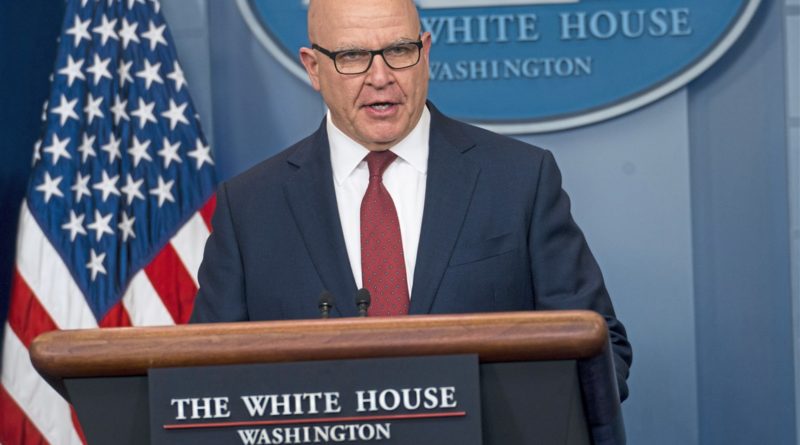McMaster goes: This national security adviser will be missed
President Donald Trump has fired H.R. McMaster, his national security adviser, and is replacing him with John Bolton, a former ambassador to the United Nations under President George W. Bush.
The president is not noted for public expressions of second thoughts but, in the privacy of the White House family quarters, he may well have second thoughts about this move.
Mr. McMaster, an Army lieutenant general, is one of the best people the president selected for his administration and one of the finest public servants in the federal government. He is a scholar-soldier — a hero of two wars who wrote his Ph.D. dissertation, later a best-selling book, on the flawed decision-making of President Lyndon Johnson and his advisers during the Vietnam War. Like Defense Secretary James Mattis, he understands war, and the special problems of democracies waging war. Mr. McMaster’s is a rare and precious perspective and skill set, and it would have been well worth keeping him around.
Mr. McMaster’s replacement, Mr. Bolton, is a bright neocon who was one of the architects of this nation’s war on Iraq, which Mr. Trump has deplored as a huge mistake. Mr. Bolton is a capable person, but not a person with Mr. McMaster’s depth of experience or understanding. One man thinks in extended bumper stickers and the other in complexities and ironies, which is to say, in the deepest context of history.
Mr. McMaster’s book deals in part with group-think during the Vietnam War. Johnson surrounded himself with advisers who told him what he wanted to hear, or what he already thought. Mr. McMaster was not that sort of adviser, and this is another reason that his departure ill serves this president, as well as the nation.
With the departure of Mr. McMaster, and former Secretary of State Rex Tillerson, who was never able to develop a solid working relationship with the president and had no idea of how to run the State Department, the president is losing a moderate impulse in his foreign policy team. And moderation is usually an inherently good instinct in foreign policy.
But the president is also moving toward a certain homogeneity of thought in his closest and most important lieutenants and advisers. Most presidents do this, and it is their right. It is also, often, their undoing.
Other View Points: Pittsburgh Post gazzette

